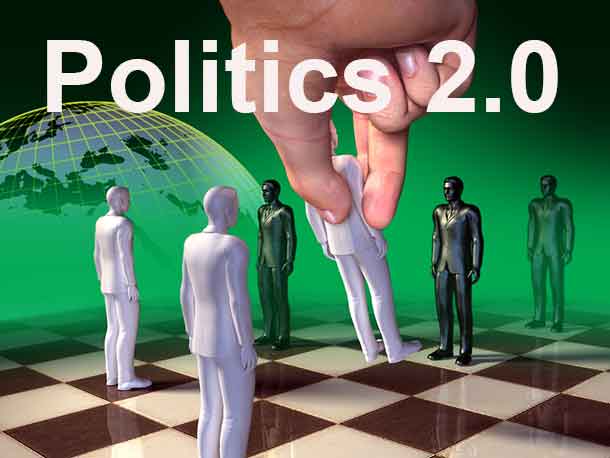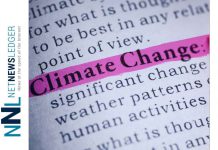
Intellectuals must help heal toxic discussion
OTTAWA – Opinion- The climate controversy is one of the world’s most important discussions. At stake are billions of dollars, countless jobs, and, if U.N. climate negotiators are right, the fate of the global environment itself. We need leaders in science, engineering, economics, and public policy to contribute to the debate without fear of retribution.
Sadly, the opposite is happening. Because the issue is riddled with personal attacks and illogic, many experts are afraid to comment publicly. No scientist wants to be part of “A who’s who of fossil fuel industry supporters and anti-science shills” as David Suzuki labeled those who attended last July’s International Climate Change Conference in Las Vegas, simply because they dare disagree with fashionable views about climate change (“Global warming deniers getting desperate”, August 8). Neither, do they want to be depicted as religious fundamentalists whose “worldview predetermines their approach to the science,” as Suzuki portrayed climate change skeptics such as Professor David Legates, a specialist in Hydroclimatology, precipitation, and climate change.
Regardless, if today’s climate change discourse is an indication of where science-based policymaking is headed, then we’re in big trouble.
Opinion leaders need to call for a change in the tenor of the debate. They should invite input from specialists on all sides of the issue and censure anyone who tries to supress alternative views. Philosophers and other scholars who study rational argumentation have a duty to also get involved to help us overcome the fallacies that are sabotaging the discussion.
For example, when advocates are criticized as “leftist, foreign funded eco-nuts” or “right-wing, oil funded deniers,” philosophers should explain, “That is irrelevant. Nature does not care about the political orientation of the debaters or who funds them. All that matters is the validity of their arguments.” It is an error in reasoning to dismiss someone’s assertions because of suspected vested interests.
And calling someone an eco-nut or a denier is an ‘ad hominem’ logical fallacy, ‘against the man’, instead of the idea, a tactic that has no place in rational discourse.
Particularly misleading is an error called ‘affirming the consequent’. It works like this: ‘If my theory is true, then a logical consequence of that theory is that X should turn green. X does turn green. Hence my theory is true.’ This is a deductive logical fallacy. Something unrelated to your theory could have caused X to turn green.
When climate campaigners claim that rising carbon dioxide (CO2) levels occurring concurrently with rising temperature proves the theory of CO2-induced global warming, philosophers should explain that they are committing the affirming the consequent fallacy. The fact that scientific theories make correct experimental predictions under certain circumstances does not mean the theories are true. Newton, Galileo, and their peers all knew this, but many of today’s scientists have swept the issue under the rug. Philosophers must uncover this flaw in the debate.
Finally, the belief that scientists discover truths, ideas that are universal, necessary, and certain, should be refuted by philosophers. Truth applies to mathematics but never to our findings about nature which are merely educated opinions based on scientists’ interpretations of observations. Since observations always have some degree of uncertainty, they cannot prove anything true.
This does not stop the U.N. Intergovernmental Panel on Climate Change (IPCC) from using observational evidence to supposedly prove truths. For example, the very first sentence in the IPCC Fourth Assessment Report Synthesis Report starts, “Warming of the climate system is unequivocal, as is now evident from observations of…”
Although he supports the dangerous human-caused global warming hypothesis, Lehigh University philosophy professor Steven Goldman explained in a personal communication that the IPCC statement is flawed. It is “an attempt to persuade extra-logically,” said Goldman. “Strictly logically, no observations can lead to an ‘unequivocal’ interpretation.”
David Wojick, a Virginia-based Ph.D. in the logic and philosophy of science, disagrees with Goldman about the climatic impact of human activity but agrees that the IPCC made a serious mistake in the Synthesis Report. “Reasoning from evidence is inductive logic,” said Wojick. “As for unequivocal, that is never the case in inductive logic.”
So why do more philosophers not speak out about these problems, errors that are diverting the public from properly considering the arguments presented?
It may be that academics judge that acceptance of climate concerns will encourage pollution reduction, alternative energy, conservation, increased foreign aid, and social justice, things many regard as beneficial. So they keep their opinions to themselves rather than impede progressive policies.
It may also be due to the fact that the overwhelming majority of philosophy professors are politically left of center and ‘stopping climate change’ is a cause liberals are expected to support.
Whatever the cause of their silence, philosophers have a moral obligation to speak out about the increasingly toxic climate change debate. The stakes are too high to do anything less.
_____________
Tom Harris is Executive Director of the Ottawa-based International Climate Science Coalition (www.ClimateScienceInternational.org).






